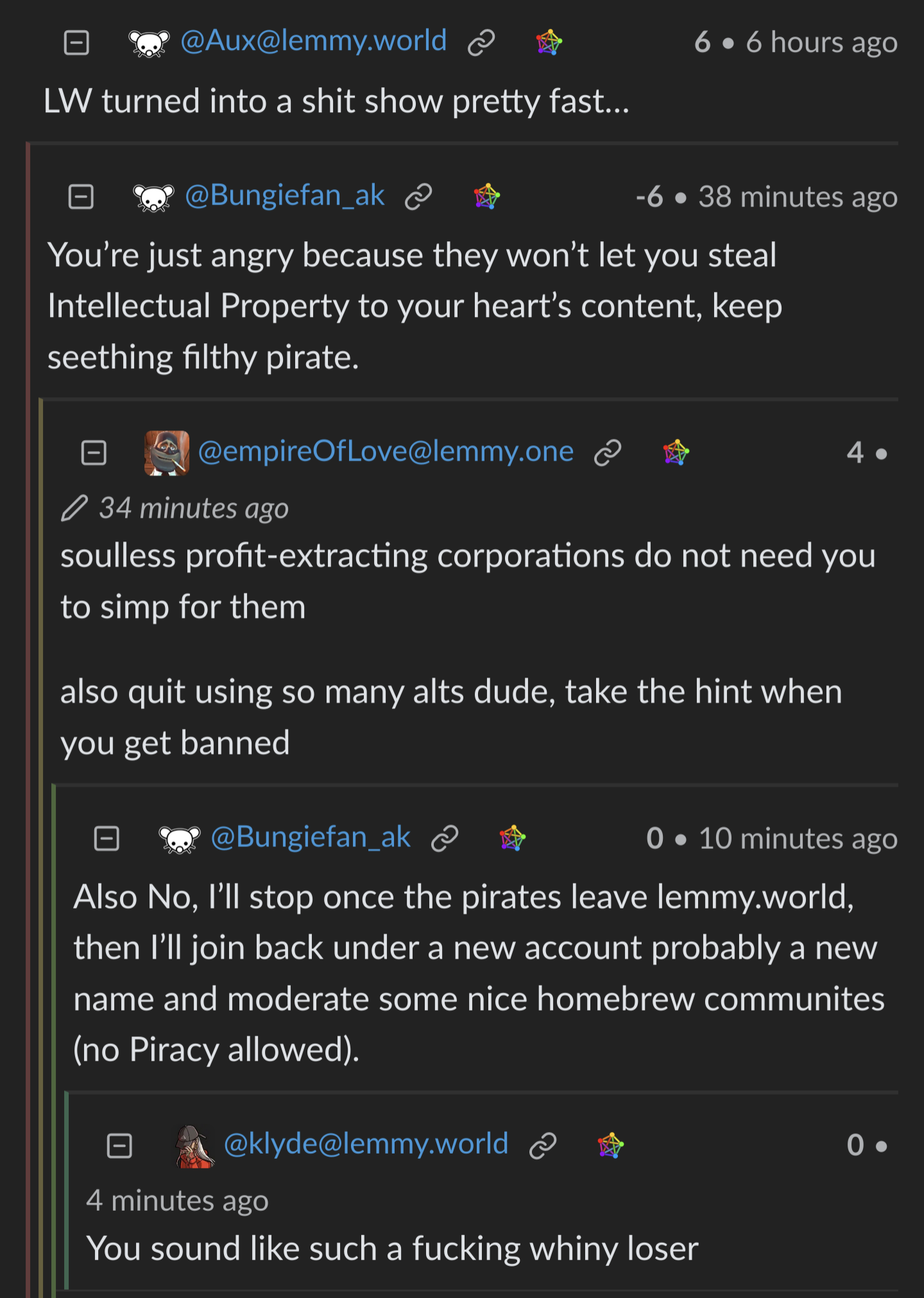this post was submitted on 15 Aug 2023
1165 points (94.6% liked)
Piracy: ꜱᴀɪʟ ᴛʜᴇ ʜɪɢʜ ꜱᴇᴀꜱ
55212 readers
203 users here now
⚓ Dedicated to the discussion of digital piracy, including ethical problems and legal advancements.
Rules • Full Version
1. Posts must be related to the discussion of digital piracy
2. Don't request invites, trade, sell, or self-promote
3. Don't request or link to specific pirated titles, including DMs
4. Don't submit low-quality posts, be entitled, or harass others
Loot, Pillage, & Plunder
📜 c/Piracy Wiki (Community Edition):
💰 Please help cover server costs.
 |
 |
|---|---|
| Ko-fi | Liberapay |
founded 2 years ago
MODERATORS
you are viewing a single comment's thread
view the rest of the comments
view the rest of the comments


This proposed change has been discussed in congress, but big tech is fighting it hard, as it would make moderation of social media very expensive and/or restrictive. Basically, certain parties want to hold platforms legally responsible for the content they host, even if that content was posted by users.
It would make it nearly impossible to legally operate a FOSS platform like Lemmy. Fortunately for us, it's one of the few areas where the interests align for both big tech and the common man.
Base64 encoding is not a legal loophole, it's a method to avoid automated content filters on platforms like Reddit and Discord. Encoding a link in base64 offers no legal protections.
I believe we are reffering to two different, but related things.
As i understand your comment, you are reffering to "the platform is responsible for what the users upload to it", or rather whether they are responsible and i am reffering to "(eg.) Torrent sites don't host copyrighted content, they only link to it".
My knowledge about the latter is from many years ago, so i might be wholly or partly wrong.
The former i think is a really interesting balancing act, since i believe that huge platforms that earns billions on hosting user content should be forced to use some of that profit to remove dangerous content, but if that obligation was put on small platforms like Lemmy instances or even the initial Twitter or Facebook, right when they lanched, they would be never be able to get up and running, which would cement the current Big Tech monopolies.
I am not very knowledgable about this specific topic, but i believe the European Unions attempts at solving this is distinguishing between the giants and everybody else, which again, is a great balancing act.
Thank you for correcting me. It makes a lot more sense that you can't just encode something to make it legal.